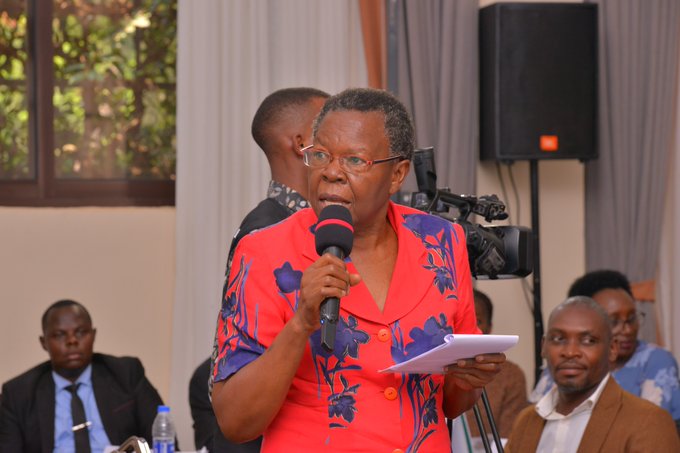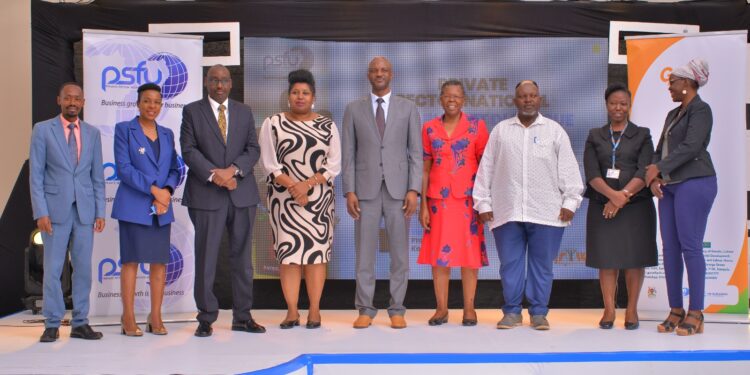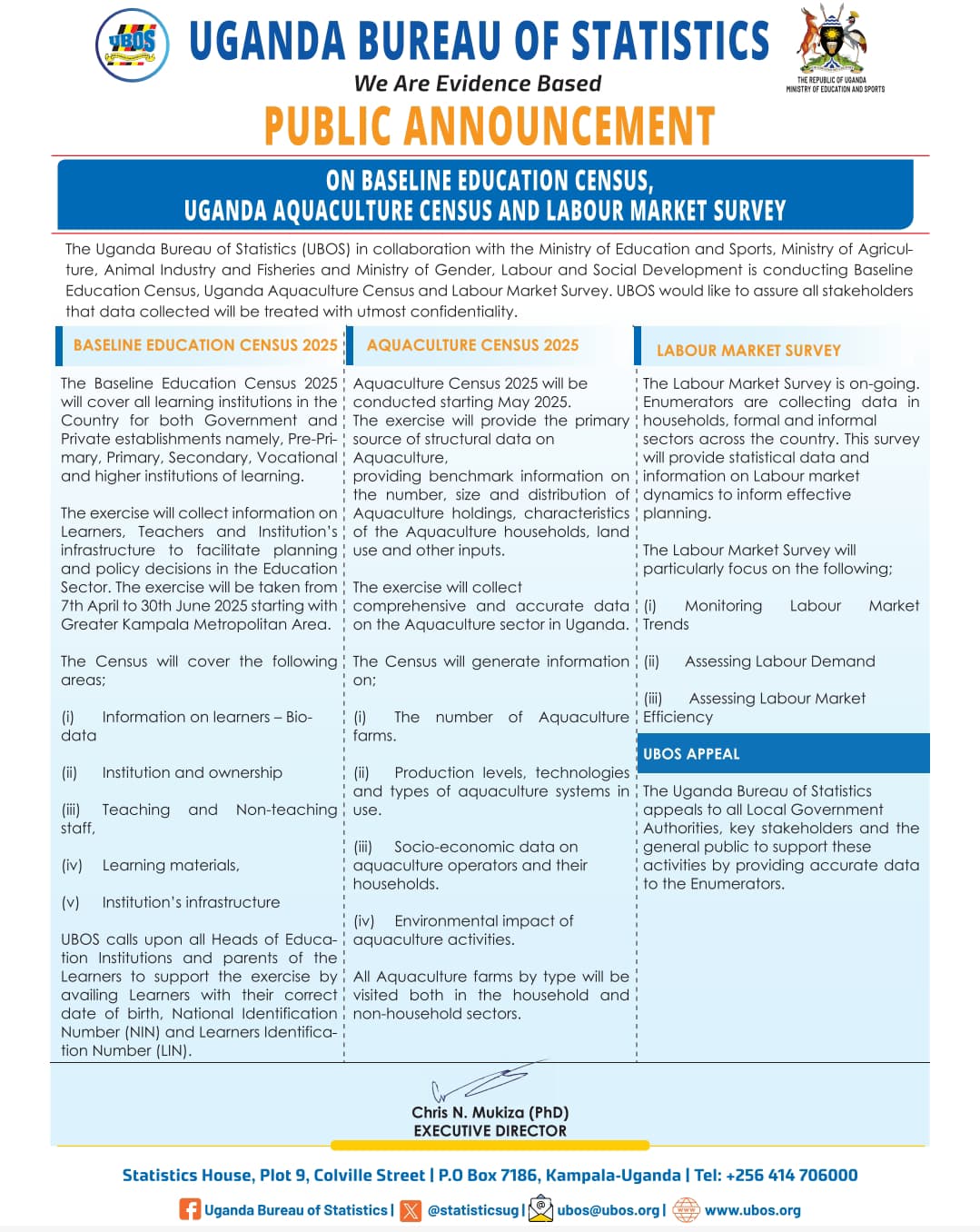Uganda’s government is scaling up direct funding to the most vulnerable, including interest-free loans for women under the Generating Growth Opportunities and Productivity for Women Enterprises (GROW) project, as part of a broader effort to ensure inclusive economic development, according to Ramathan Ggoobi, Permanent Secretary and Secretary to the Treasury at the Ministry of Finance.
Speaking at the Private Sector National Post-Budget Dialogue held at Protea Hotel Kampala, Ggoobi said the government is determined to eliminate wasteful intermediaries and ensure public resources reach those most in need.
“We’ve learned that when money is sent through multiple layers, it rarely reaches the intended beneficiaries,” he said. “That’s why we now disburse funds directly from the Treasury to identified beneficiaries using digital systems.”
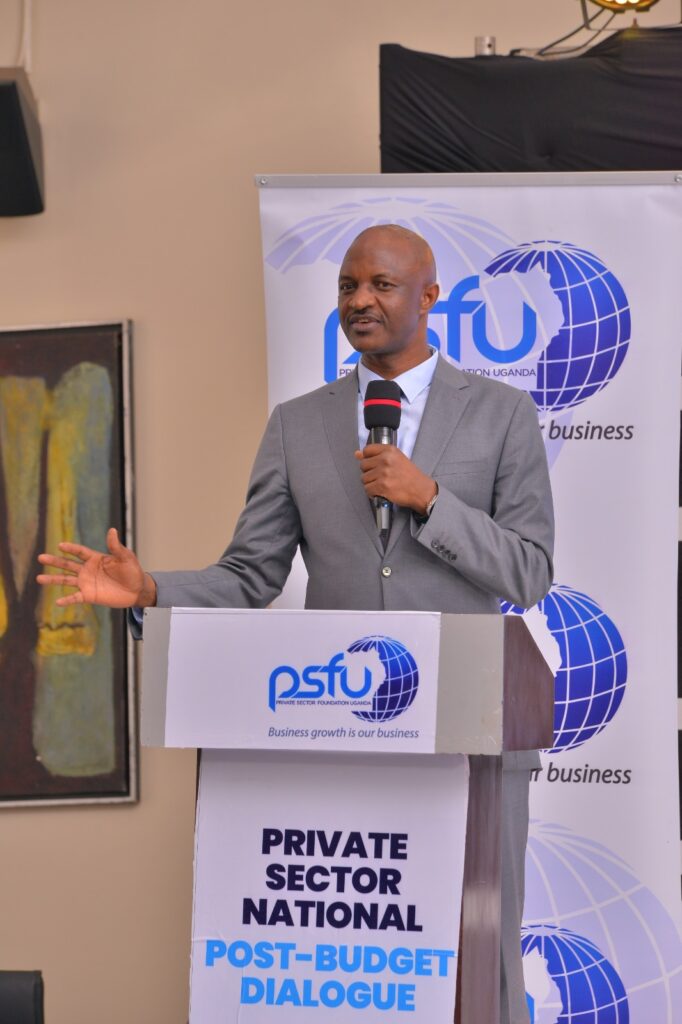
Ggoobi emphasised that the GROW project, which supports women-led enterprises, will soon roll out collateral-free loans specifically targeting women in refugee-hosting districts. “These are not just loans. They are tools for transformation – for women who are often left behind in our traditional financing systems,” he said.
So far, the Ministry of Finance has supported over 2,540 women through GROW, with plans to scale the program further in the next fiscal year.
To enhance accountability, the Ministry has developed a digital monitoring system dubbed “EYED,” which allows the government to track funds down to individual enterprises and households. Ggoobi said this technology will reduce misuse and ensure that development finance is used productively, whether for poultry, coffee farming, or small-scale manufacturing.
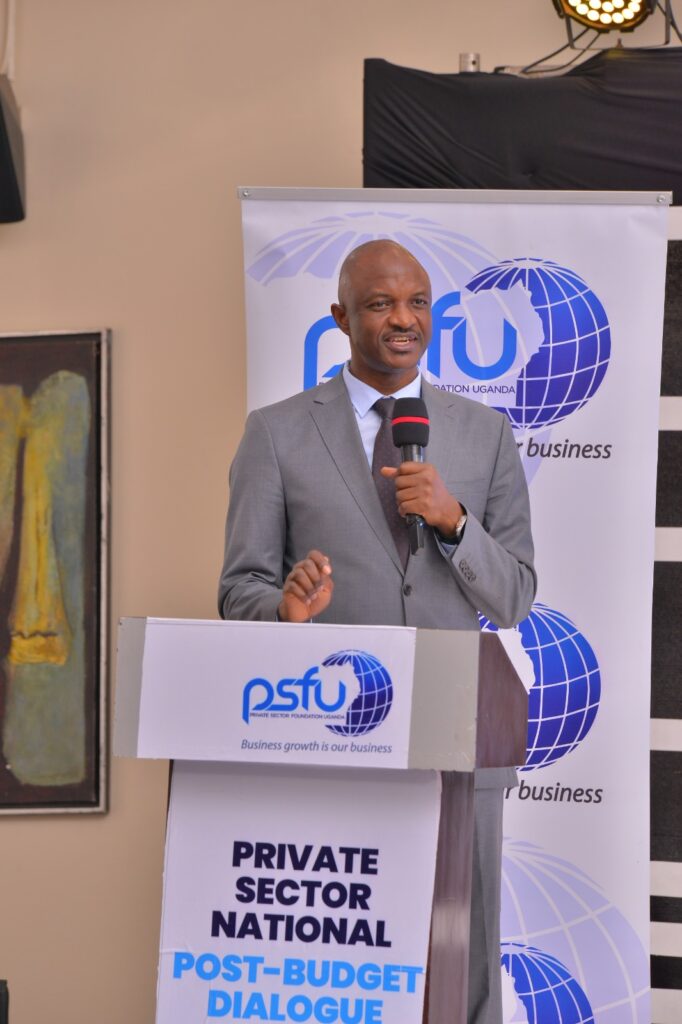
He noted that these efforts are already contributing to a reduction in income inequality, citing the latest Uganda Bureau of Statistics data showing that the country’s Gini coefficient has dropped from 0.41 to 0.38 over four years.
“This is a budget that puts people first,” Ggoobi said, pointing to the Shs 11.4 trillion earmarked for health, education, social protection, and access to safe water.
He also urged the private sector to take advantage of ongoing public investments in infrastructure, digital systems, and value chains, noting that the government had maintained a business-friendly posture by avoiding new tax burdens in the FY2024/25 budget.

Call for Deeper Investment, Implementation, and Local Content
Key players in agriculture, tourism, minerals, and science and technology called for a more deliberate focus on implementation, increased access to affordable credit, and stronger support systems for farmers and small-scale enterprises, as they reflected on Uganda’s FY 2025/26 national budget.
During a panel discussion, experts expressed cautious optimism about the government’s direction but urged more targeted investment and systemic reforms to unlock real impact. “We have to commend the government for increasing the amount of money it is putting in the Uganda Development Bank, but it is still too little for those trying to set up serious factories,” said Allan Ssenyondwa.

He rallied for the revival of cooperatives, arguing they would help reduce the burden on farmers in acquiring quality seeds, fertilisers, and acaricides, and accessing markets.
Dr Theopista Ntale Sekitto of the Graça Machel Trust echoed the importance of credit access. “I am pleased with what the GROW project is doing to improve access to credit in Uganda, especially for women. However, the general cost of money in Uganda is still high, and the turnaround times are ridiculous,” she said.

Humphrey Asiimwe, CEO of the Uganda Chamber of Energy and Minerals, raised concerns about the lack of local community participation in the energy and minerals sectors.
“How can we get our communities to be involved in the energy and mineral projects as part of boosting local content? It means we have to walk the journey of formalising what they are doing and ensuring it is done in a sustainable manner,” he said.

He also emphasised the need for focused exploration, stating: “If we want to benefit from the minerals of this country, we have to do some serious mapping. We have more than 50 minerals, but we need to focus on a few—like five—that we can package very well.”
Brenda Ssekabembe Mulema, CEO of Bake4Me Ltd., stressed the need for better implementation mechanisms while highlighting the potential of the agri-food sector in job creation and value addition.
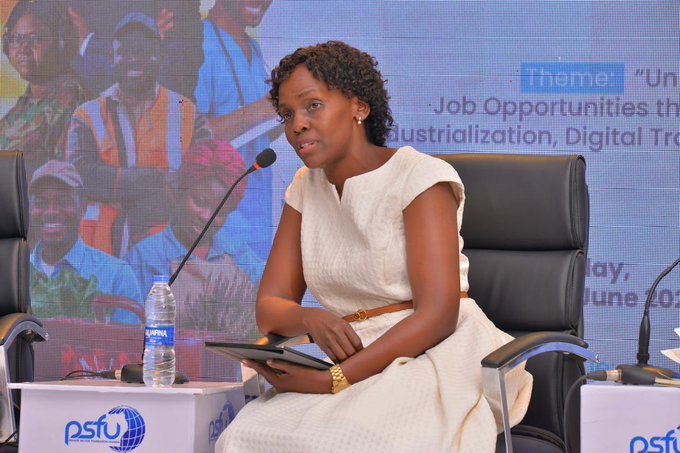
Hon. Victoria Ssekitoleko, a PSFU board member for Agriculture, called for a paradigm shift in how policy is understood and executed. “The word policy means enkola in Lusoga, so we need to stop saying that policies are good but the implementation is not. A good policy is one that is also well implemented. Both have to be good,” she said.
The dialogue was hosted at Protea Hotel Kampala under the theme: “Unlocking Investment and Job Opportunities through Commercial Agriculture, Industrialisation, Digital Transformation, and Market Expansion.”
